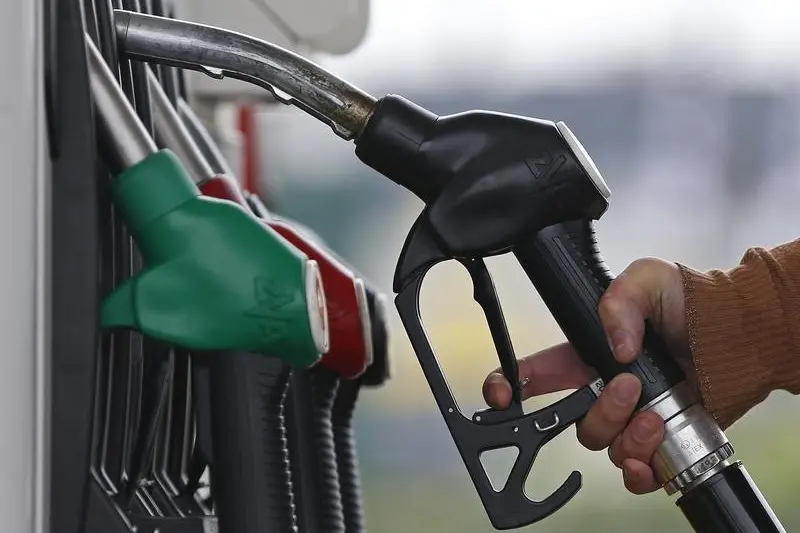PHOTO
Tuesday, Jul 28, 2015
Abu Dhabi: The new fuel prices announced by the UAE Ministry of Energy on Tuesday were on expected lines and did not come as a surprise, analysts said reacting to the new measures introduced by the UAE to cut decades-long fuel subsidies and streamline fuel prices in line with the international average.
They said it will create an impact on inflation in the short term but will benefit the economy in the long run.
Diesel prices were reduced by 29 per cent and petrol prices were increased by about 24 per cent for the month of August.
This is the first time the UAE has made such an announcement related to fuel prices.
Other Gulf countries which are battling fiscal deficit this year due to plunge in oil prices are likely to follow the UAE in cutting fuel subsidies and reducing impact on their economies.
In January, Kuwait raised domestic diesel and kerosene prices but retracted the decision later due to criticism from the parliament members. Oman has been studying gasoline prices while Bahrain has increased the price of natural gas for the industry.
Oil prices plunged by more than 50 per cent in the last one year. From $115 (Dh422) per barrel last year, oil prices fell to less than $60 this month. The trend is likely to continue for the next one year.
Sachin Mohindra, a Portfolio Manager and senior vice-president of Invest AD said there will be some impact on the inflation due to increase of petrol prices by more than 20 per cent.
“We might see cost going up here and there but it will benefit the economy in the long run,” he said speaking to Gulf News over phone.
He said the discussion to reduce subsidies has been going on for many months even before the oil prices started to drop.
“There are number of factors behind the decision. Drop in oil prices is one of them. Rationalisation of subsidies is good for the economy and leads to transparency.”
Credit ratings agency Moody’s said the new fuel price measures are credit positive for the UAE and Abu Dhabi, as they will bolster government finances dented by the downturn in global oil prices.
“Given our forecast for Brent crude oil prices to average $60 per barrel in 2015, versus $101 in 2014, we expect a 27 per cent drop in consolidated government revenue,” it said.
Moody’s said In 2015, the UAE will likely face a fiscal deficit of 2.3 per cent of GDP, its first deficit since 2010, and a decline from a 10.3 per cent surplus in 2014. Phasing out fuel subsidies will partly offset the negative effect of lower oil prices, it said.
The International Monetary Fund projects the UAE will post its first fiscal deficit this year since 2009, and estimates the country spends $7 billion annually on petroleum subsidies.
Edward Bell, a commodity analyst at Emirates NBD said the fuel prices in the UAE are relatively more affordable when compared to other countries like the US and UK.
“Fuel prices will go up and down depending on the international average. The new prices will not have a big impact on inflation,” he said.
Matar Al Neyadi, chairman of the Fuel Price Committee and Undersecretary of the Ministry of Energy said that the reduction of diesel prices for August from Dh2.90 to Dh2.05 will serve as a stimulating factor for the economy.
“This will enhance the competitiveness of the national economy, reduce the prices of commodities and eventually reflect positively on the economy.”
He added that the ministry has coordinated with all relevant entities in the country including the Ministry of Economy and the Supreme Committee for Consumer Protection to monitor the movement of prices and safeguard the rights of consumers.
“This will ensure that people across the country benefit from lower diesel prices, which would mean lower operating costs for a wide number of vital sectors such as industry, shipping and cargo.
“As for the increase in gasoline prices, the impact on individuals will be minimal as the prices for cars with 4 cylinders will increase on average by nearly Dh18, for 6 cylinder on an average by nearly Dh25 and 8 cylinder by Dh45.”
“Such an increase would not create an additional burden on car owners with limited incomes. Additionally, it will promote rationalised consumption and incentivise people to choose most fuel efficient cars, while curbing the increase in the number of cars on the country’s roads in the future.”
Francisco Quintana, head of Economic Research at Asiya Investment said the hike in gasoline will not have a sizable impact, neither in the government’s financial situation nor in the consumer’s pocket.
“Even though the increase might sound large, the absolute price is so low that impact is negligible,” he said in an emailed statement.
He said cut in diesel prices indicates the priority given by the government to the development of the logistics sector, which accounts for 6 to 7 per cent of GDP and is a heavy consumer of diesel.
“Eventually subsidies will be removed in that sector as well. Overall, the move is quite positive, even more if it incentives other nighbours to follow suit.”
By Fareed Rahman Senior Business Reporter
Gulf News 2015. All rights reserved.





















